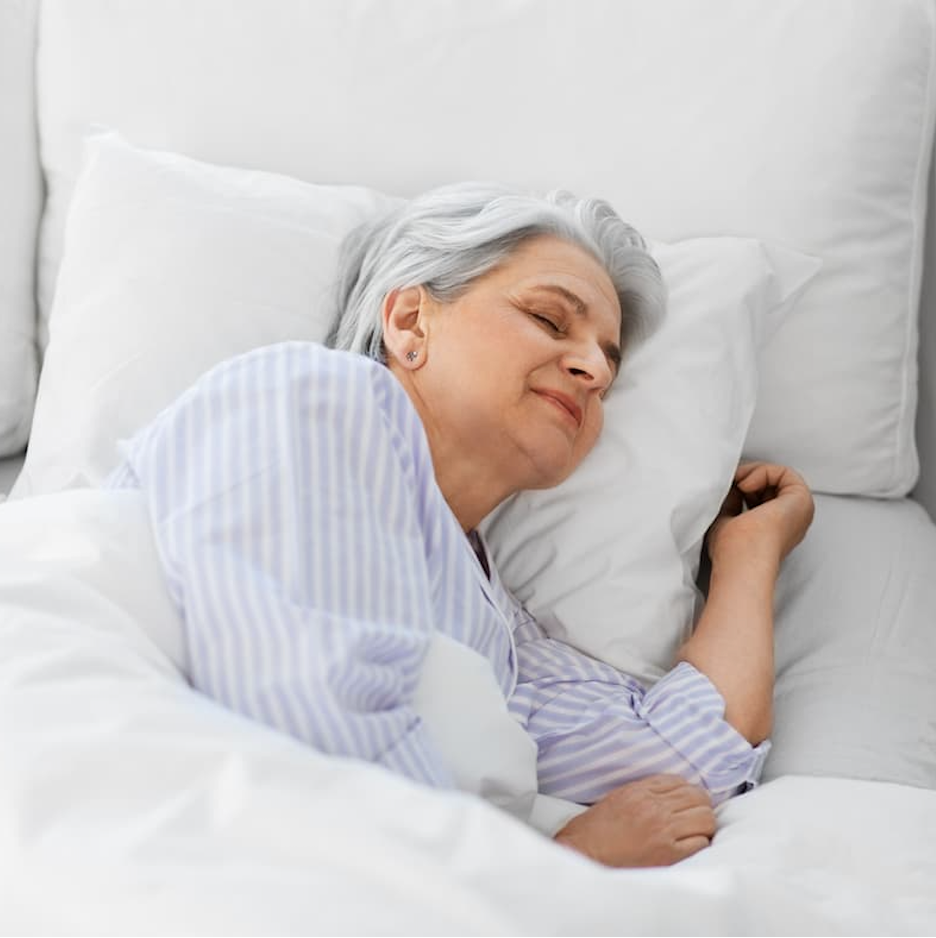Mobile Health Tools Improve Sleep in Seniors
Mobile health (mHealth) interventions, such as sleep hygiene advice, relaxation techniques and physical activity programs, show promise for improving sleep quality in older adults.
By
Lana Pine
| Published on September 25, 2024
5 min read
Credit: Adobe Stock/Syda Productions

Improvements in subjective sleep quality were observed after the application of the mobile health (mHealth) interventions among older adults, highlighting the potential of mobile applications for treating sleep disorders in this population.
Poor sleep help includes both insufficient or excessive sleep time, sleep interruptions, inconsistent sleep schedules, low sleep quality and daytime impairment. Insomnia affects approximately 30% to 50% of older adults and 20% report issues with sleep apnea. These symptoms, such as waking up too early, feeling tired during the day or having trouble falling asleep at night can significantly impact a person’s quality of life and are linked to mental and physical health problems. People with sleep disorders are also more likely to develop cardiovascular and metabolic conditions and have an increased risk of all-cause dementia, increased mortality and psychiatric comorbidities.
mHealth interventions can deliver nonpharmacological approaches, such as sleep hygiene advice, relaxation techniques, cognitive behavioral therapy for insomnia symptoms and physical activity programs, which can increase access and reduce health care-related costs.
“Although most health promotion and disease prevention interventions for older adults are conducted in a traditional mode, such as face-to-face counseling, there is a growing trend towards using information and telecommunication technologies in healthcare; over the last ten years, mHealth has rapidly advanced and demonstrated significant potential in transforming people’s health habits,” wrote investigator Alessandra Buja, MD, PhD, associate professor within the Department of Cardiological, Thoracic and Vascular Sciences, and Public Health at the University of Padua in Italy.
These technologies offer features that are not commonly implemented in traditional care, such as text messages delivering medical advice and phone reminders to exercise or take medication.
Investigators used electronic databases to search for relevant studies that focused on improving sleep quality or contrasting primary insomnia among patients who were aged 60 years and older. Eligible studies were intervention studies that implemented mHealth-based interventions. The primary outcome of interest was changes in the Pittsburgh Sleep Quality Index (PSQI).
From an initial identification of 693 records published between 2013 and 2023, only five studies met the eligibility criteria. Three of these studies used cognitive behavioral therapy for insomnia and the other two tried to improve sleep quality through physical activity and self-care programs focusing on nutrition, exercise, mental health and the management of chronic diseases.
All included studies showed improvements in subjective sleep quality, with significantly improved PSQI scores during and post-intervention. Among the studies evaluating cognitive behavioral therapy, the mean PSQI score decreased in all three trials, demonstrating improved sleep quality.
Some studies also demonstrated objective improvements using actigraphy (the measure of sleep through the Actiwatch), though these findings were limited. The physical activity-based intervention study reported significantly improved sleep duration and sleep efficiency for those receiving mHealth and the cognitive behavioral therapy intervention showed subjects were able to decrease their wake after sleep onset by almost 12 minutes.
mHealth interventions are easily accessible, cost-effective and allow more flexibility for patients. Adherence can be improved by incorporating feedback, interactivity, multimedia offerings, animations and social networking.
Investigators noted the small number of eligible samples as a limitation of the study, as well as the limited sample size and heterogeneity in the types of mHealth intervention and study design. However, the consistency of the findings is promising and investigators encourage the development of similar studies evaluating the efficacy of similar interventions to improve sleep quality among older adults.
“The use of mHealth and telemedicine has become increasingly important for healthcare providers, particularly in light of the COVID-19 pandemic, with a heightened significance for older adults who are more vulnerable and have limited mobility,” investigators concluded. “These results can support the use of mHealth interventions to improve insomnia symptoms in older adults who cannot access traditional interventions.”

